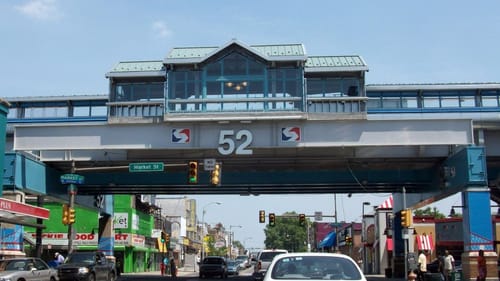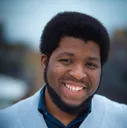Stay in the Loop
BSR publishes on a weekly schedule, with an email newsletter every Wednesday and Thursday morning. There’s no paywall, and subscribing is always free.
Can we fight alone?
With protests continuing and school on the horizon, whom can we trust?

The past few weeks, I’ve found myself fielding more conversations than usual. You know how the saying goes, right? “Availability is the best ability.” I build trust on that. Balancing all those conversations with work, maintaining personal health and self-care, keeping up with what’s happening in the world, plus drumming up what creative energy I can in the quiet hours after sunrise—it’s all a challenge. I’m not sure I’m handling it so well, and it’s because, despite our attempts to reach out, we’re all grappling with what it means to be alone right now.
So much in common
I’ve found common denominators in these conversations. Expressions of frustration, confusion, and exhaustion linger heavy at the surface. Underneath are rumblings of despair. Not knowing how everything is going to pan out next week, never mind next month, breeds despondency. And the word I’m hearing the most: alone.
The term bears crushing weight, and it’s not defined merely by physical isolation. Alone culminates a series of intangible components, like everything that’s happened in the last five months. When quarantine first started in March, many of us thought we’d be back in action in April. April came and went, without any semblance of what to expect for the rest of spring. People lost their jobs, unemployment was a hassle, and a lone stimulus check staggered into our thinning wallets. May arrived. This will be over by summer, right?
The art of betrayal
The swell of conversation ballooned when the protests in Minneapolis started and found their way to Philadelphia during that last week of May and early June. At the peak of the conflict, tanks and police officers spewing tear gas and rubber bullets and racial slurs invaded the West Philly neighborhood I call home. Imagine, for a second, where you grew up. Now, imagine the cops roiling that neighborhood into a warzone.
According to a report gathered in the Philadelphia Inquirer, Mayor Jim Kenney gave police commissioner Danielle Outlaw the initial authorization to use tear gas in West Philadelphia. Tear gas is “banned from warfare but permitted for domestic use as a crowd dispersal method in the city since the days of former police commissioner and mayor Frank Rizzo in the 1970s.”
With this, and the mayor’s budget cuts targeting arts, culture, and other vital human services, I’ve become immensely disappointed in Kenney. On the other hand, Outlaw is coming from stints in Oakland and, most recently, Portland. As the first Black woman police commissioner in Philadelphia, Outlaw arrived with praise and said in a statement to her new city that “the paramount factor [in modern policing] is not so easily quantified: trust—the trust residents have that their police force will keep them safe and treat them with respect … I am convinced community-police relations can be rebuilt and fortified through dialogue, transparency, and accountability.”
Outlaw has yet to apologize for the events that occurred in West Philly and maintains her stance on the decisions made.
When someone expatiates how they will build trust with you and then betrays you and refuses to express remorse or regret, it chips at your ability to trust anyone else in the future. If you’ve got no one or nothing to trust, what does that leave you?
Distressed civilians
It’s impossible to navigate a pandemic alone, especially alongside civil unrest and a crumbling economy. Many of us are experiencing varying degrees of loneliness, all while our livelihood and income, our relationships, and our safety are being compromised or torn away. Categorically, what we are experiencing is loneliness, which an April 2020 Psychology Today piece calls “the psychological state characterized by a distressing experience occurring when one’s social relationships are self-perceived to be less in quantity and quality than desired.”

We’ve been forced into isolation with no outlook or support, and many of us are physically alone, too. We’re distressed, and our worth as civilians living in America seems to erode more and more, especially as mysterious federal forces descend on people protesting racial injustice. Meanwhile, others are forced to put their lives at risk by going back to work—and soon, school.
School looms
A screenshot of a July 19 email that appeared in a Facebook group for Philly’s theater community spread the news that a youngster at Walnut Street Theatre’s Camp Walnut tested positive for COVID-19. The theater recommended that all children and staff from the affected student’s portion of the program quarantine at home for 14 days, assured parents that classrooms would be cleaned and disinfected daily, and said the affected segment of camp would resume by August 3. According to a Facebook update, that programming is now canceled, but as of this writing, no official announcement has been made by the Walnut Street Theatre on its website or social media. It’s a situation worth considering for anyone advocating that schools reopen.
With a new school year looming, I asked friends with young children what options they were considering. They said they don’t know what to expect, and none of them were adamant on sending their children to school. They demanded clear solutions and protocols for the safety of their children, but felt they weren’t afforded that.
Schools closed with the quickness back in March, but even though August and September are looking to be worse than the spring, we’re marching to reopen.
Alone in the fight?
We, the people, are stressed the hell out. Leaders and officials aren’t making the decisions we trusted them to make, and they’re not engaging in “dialogue, transparency, and accountability” with the communities they represent. Without dialogue, without trust, there is no salient line of communication. Our leaders apparently won’t grasp what schooling families are about to go through. They ignore what protesters in West Philly and beyond have gone through. And when no one gets you, what does that leave you with?
We are alone, and we might have been alone for a long time without knowing it.
Sign up for our newsletter
All of the week's new articles, all in one place. Sign up for the free weekly BSR newsletters, and don't miss a conversation.

 Kyle V. Hiller
Kyle V. Hiller